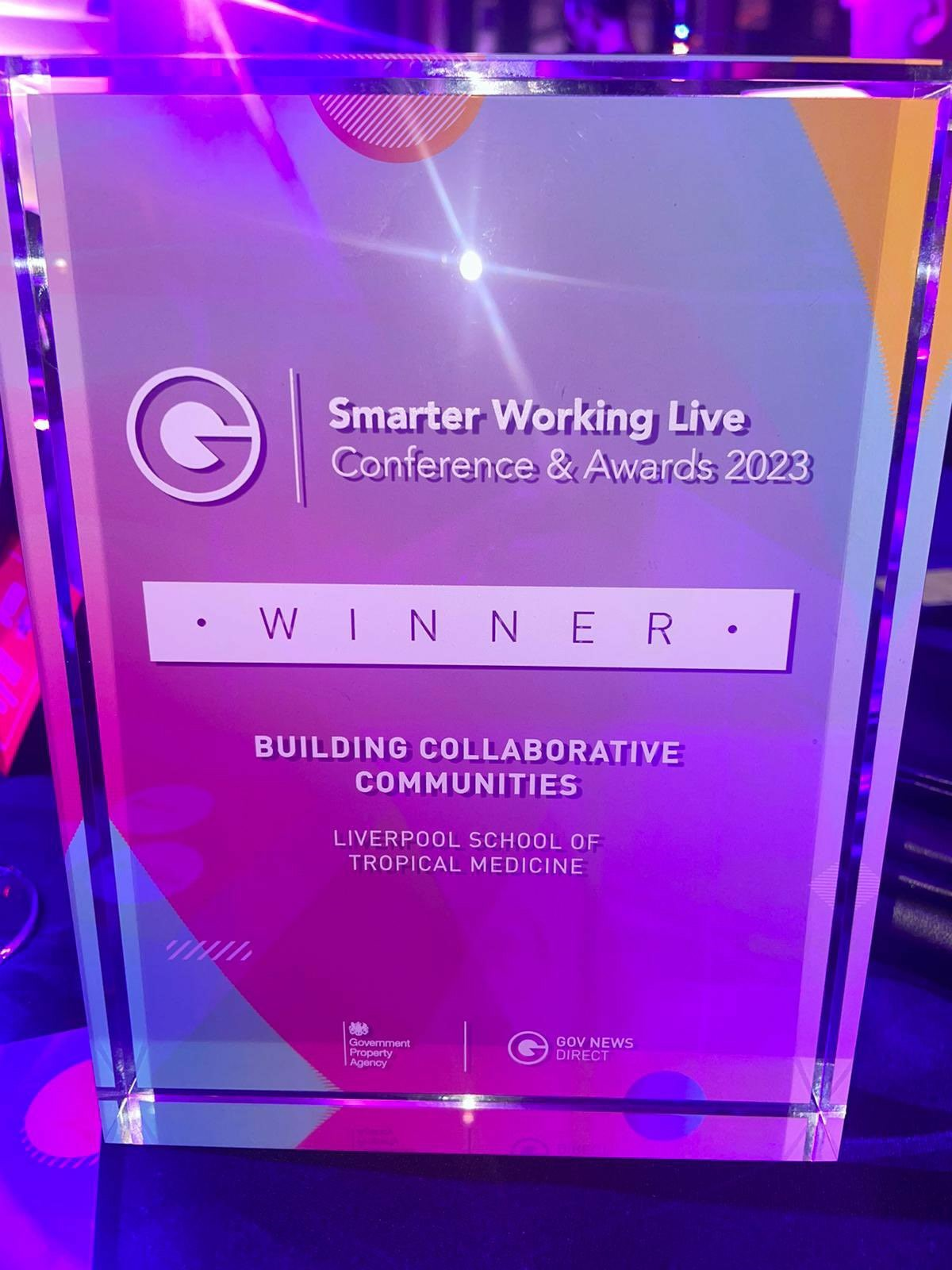
Congratulations to LSTM-led Liverpool Vaccine Equity Project, which has won aBuilding Collaborative Communities Award at the Smarter Working Live Awards, 2023, which celebrate innovation, collaboration, and excellence in the public sector.
The project is led by Miriam Taegtmeyer, Professor of Global Health at Liverpool School of Tropical Medicine (LSTM) and works closely with Liverpool City Council, local GP practices and community champions and volunteers. It began as a community-led programme to halve Covid 19 vaccine inequity using local data and community advocates, to overcome barriers to vaccine uptake.
The team recently began a new phase, funded by Liverpool City Council, and will be rebranding with its new name ‘Health Equity Liverpool Project’. It will use the same approach to actively tackle avoidable and unfair differences in health in Liverpool. The priorities this round are in tackling barriers to cancer screening and improving the uptake of common childhood vaccines, rates of which have dropped dramatically since the pandemic.
LSTM’s Senior Community Mobiliser, Amina Ismail, is the public health driver for phase one and two of the project: “I’m delighted we’ve won the phase 2 award; our collaborative approach to working with local communities has had measurable and life-changing outcomes for people. I’m excited for the next phase of the project and feel that we are just getting started. The Health Equity Liverpool Project will bring the same local knowledge and insights to the issue of broader health inequity; this is a model that can be replicated elsewhere and is proven to work well.”
The new phase of the project will extend the community-led model to three additional primary care networks, creating additional community innovation teams to extend the project’s remit.
LSTM’s Miriam Taegtmeyer: “It is wonderful to get this recognition for a project that is becoming an exemplar for how to innovate around public health communication and activity. The first phase of this project leveraged global health learnings, using these to drive localised solutions. We’re taking these learnings to the next level, in phase two of the project, to enable us to communicate with even more people in harder to reach communities across Liverpool.”
Director of Public Health for Liverpool, Professor Matthew Ashton said “I’m delighted that Liverpool’s Vaccine Equity Project has been recognised for its outstanding community engagement. Data told us that people living in the most deprived areas of Liverpool were more likely not to be fully vaccinated or vaccinated at all - and we knew there were many reasons behind this.
We also knew that working with communities to develop local solutions was key to shifting the dial, and not only tackling mistrust, but ensuring the vaccination offer was right, and understood. Local public health activity should always be about supporting people to make decisions for themselves – not just telling them what they should do, and this project is a fantastic example of that approach”.
The Liverpool Health Equity Project brings together social science academics, community health workers and advocates, to deliver public health interventions in some of Liverpool’s most deprived areas.